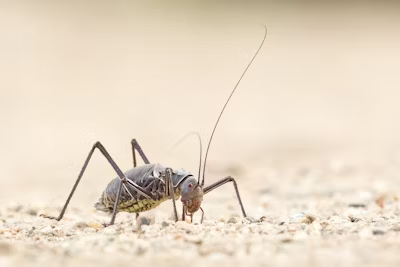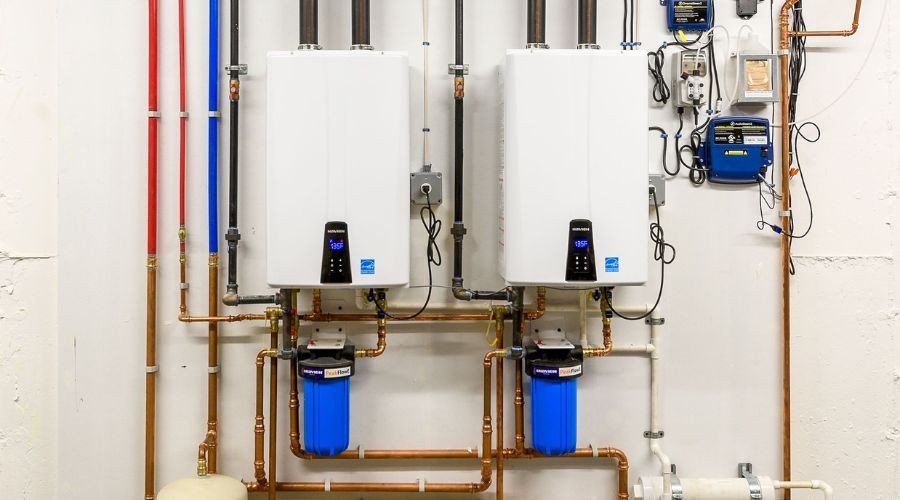Do you get fed up with ants in your kitchen or cockroaches in the home?
Neither are you alone.
Homesteads in Perth are highly infested with pests, particularly in hot summer and in wet winters.
It occurs to most people that the only option available is to call in professional pest control teams in Perth. And although that is true of serious cases, most of the minor pest problems will be resolved by you, in case you get the tips on them.
This is where Do-It-Yourself pest control comes by. It is easy, less expensive, and leaves you with more control over what you use in your house.
But many homeowners feel confused. What works and what doesn’t? Are natural sprays effective? How do you stop pests from coming back? And when should you stop doing it yourself and call an expert?
Don’t worry, this blog will answer all your questions.
You’ll learn 11 proven DIY pest control tips that work for Perth homes. These tips are easy, safe, and perfect if you’re dealing with pests like ants, spiders, cockroaches, or even rodents.
We’ll also show you the common mistakes to avoid, and explain when it’s better to stop DIY.
What Is DIY Pest Control?
You might already have some idea, but let’s understand it simply.
DIY pest control involves doing the work on pests in your house without involving any pest control firm. It is a matter of having basic things at home, such as natural sprays or traps, or cleaning practices, to prevent insects and rodents from getting into the house.
Many of us believe that pest control always involves chemicals, or when we hire an expert to do it, yet the truth is not. Small pests can be dealt with by simple measures and a little bit of regular maintenance.
In case you spray vinegar as well as water on kitchen counters, ants might cease visiting. This will assist in keeping flies and cockroaches away when you make use of soda and hot water in cleaning the drains.
Air-tight containers keep away pests from smelling the food or attacking the food. The watering of plants, even closing the dustbins, and slashing of plants outside can do a lot.
Most pests like dirty and wet conditions, uncovered food stuff, and small gaps to enter the house. Thus, having a clean and dry house that is well sealed no longer lets the pests in the house.
This approach is suitable in case the problem is small or new. In addition, it assists in prevention, and the problem will not increase in the future.
Naturally, when the pest problem assumes a large or serious dimension, there is always an option of seeking professional assistance.
However, DIY pest control can be very useful, easy, and inexpensive in case of ordinary protection and minor problems.
11 Proven DIY Pest Control Tips for Homeowners in Perth
You need not be told how prevalent the presence of pests is, in case you reside in Perth, particularly during the summer season and rainy seasons.
Daily home challenges include ants in the kitchen, cockroaches in the bathroom, and spiders in the corners, as well as instances of rats or termites.
Not all pest infestations have to be assisted by an external professional. There are a lot of minor problems that may be effortlessly addressed at houses with the help of several easy steps.
It is referred to as DIY pest control. It implies employing the examples of nature, simple implements, and clever routines to stop insects and make sure your house is secure and hygienic.
Then, here are some effective and time-proven hints, which you may begin to use as soon as possible. Anyone can give them a try even when you are new to this pest control stuff.
1. Keep Your Home Clean and Crumb-Free
The best way to prevent the pests is cleanliness. The insects, including ants and cockroaches, invade your house in pursuit of food. They will keep returning in the event that they discover crumbs on the floor, sugar on the countertop, or unwashed dishes on the drainboard.
Cleaning up the kitchen every day should become a habit. Clean up the place after preparing food and also wash the dishes at the end of the day. Uncovered food should not be left around in any case. Pests can be attracted to just a small portion of food.
Moreover, maintain the dust bin close and empty it every day. Some have pets and therefore ensure that the food bowls are clean and store the food appropriately. Pests also get attracted by pet food odours.
2. Seal Cracks and Entry Points
Pests may always find a way into your home, even through minute openings, even when the house appears to be clean.
Look at windows, doors, corners, walls. You may notice some cracks or holes, and thus you should seal them appropriately with the filler or the mesh.
Be keen on pipe cracks, vent holes, and roof tile cracks. Other times, even the smallest opening is sufficient to allow the entry of ants, cockroaches, or even rats.
Termite is a common affair in Perth. They generally infiltrate their way into the house through tiny holes on the floor or in the garden. This is the reason why it is rather important to check ground-level openings.
3. Fix Leaks and Remove Moisture
It is not only the goal to seek food that pests pursue; they also seek water. Moist corners within your house become the best breeding ground for pests.
In case you have leaking taps, under the sink pipe, or puddles of water around the washing machine, then you must address those issues immediately. Besides, ensure your bathroom and laundry rooms are well ventilated. The place can be kept dry using an exhaust fan or a dehumidifier.
By drying the house, you are preventing the silverfish, mosquitoes, and cockroaches from developing in the house.
4. Keep Your Garden and Outdoor Area Clean
At other times, pests get their way into your home through external means. When overflowing with leaves and long grass or lying water, your garden or yard will give a good habitat to pests.
Cut grass, take away the dry leaves, and clean gutters so that the water does not stagnate in these places. Don’t keep firewood, wooden boards, or garden waste near your walls. Termites and ants love to hide in these.
Also, check flower pots and trays. If water stays in them, mosquitoes will start breeding. So always empty the water from them after rain.
5. Use Natural Repellents at Home
You do not need strong or harmful chemicals for everything. Some natural items work just as well and are safer for families, kids, and pets.
When it comes to ants and spiders, you are free to spray peppermint oil mixed with water.
In the case of flies, vinegar would serve. Citronella is not a favorite of the mosquito, so you can apply citronella oil near the doors and windows.
The natural sprays are applicable around the floor, behind furniture or windows, and around drains. They can be quickly prepared and secured to be used every day.
6. Try Simple Traps and Baits
Instead of using chemicals, you can also use simple traps at home. For ants, mix sugar and borax, then place it near where they walk. They will carry it back to the nest, and the problem will reduce.
In the case of cockroaches, beer or sticky traps set at corners in a small bowl should suffice. Spiders tend to lurk in dark corners; hence, make use of glue trappings or areas of rolled-up paper tubes behind the furniture and under beds.
Such traps do not require much effort to set, and they operate silently, appealing to lessen the number of pests.
7. Store Food in Airtight Containers
In most cases, we keep food in open packets or cardboard boxes. Pests such as weevils or pantry moths can easily go in through these. In addition to that, cockroaches will chew through thin plastics.
It is advisable to store those things that are dry, such as flour, sugar, rice, and snacks, in air-tight containers. Put inside thick glass or plastic containers which have a tight seal. Not only does this make the food fresh, but hinders the odour that draws pests.
8. Wash Bedding and Pet Items Often
Certain pests lie in cushy spaces, such as beds, curtains, and animal beddings. These areas can harbour dust mites, fleas, and even bedbugs, of which you do not realise their existence.
Wash bed sheets, blankets, and pet beddings regularly, using warm water. Vacuum your sofa, mattress, and rugs, at least once each week, provided that this is possible. This will assist in removing eggs, dust, and lurking pests.
It also gives the home a fresher and cleaner air in general.
9. Know the Common Pests in Perth
Different places are infested with varying pests. Perth also has ants, termites, redback spiders, cockroaches, and rats.
Being aware of the type of pests being active in your community allows you to take better care.
As an example, in case termites are prevalent around you, it is a clever idea to inspect wood pieces and garden mulch more frequently.
Knowing what blights them will assist you in preventing them prior to finding them a huge nuisance.
10. Let Helpful Insects Stay in the Garden
Not all insects are bad. Some bugs help your garden by eating the harmful ones. For example, ladybugs and lacewings feed on plant-damaging insects like aphids.
So avoid using strong sprays everywhere. Let the good insects do their job while you only target the harmful ones. This balance helps nature and makes your garden healthier.
11. Know When to Get Help
Do-it-yourself methods of pest control are suitable for small-scale problems, but not all problems can be solved at home. When you notice such indicators as termite mud trails on walls, rat droppings, or wasp nestings in the garden, it is best to consult a person of the correct expertise.
Second, when you have tried so much and the pests keep attacking, then it would be time to quit and consult professionals.
When this happens, using Professional pest control services perth may save you more time, money, and unnecessary stress. Well-trained professionals understand how to deal with infestations that are of larger expanses safely and within a short period, particularly when DIY means are not sufficient.
By doing so, you ensure that you are not endangered, as well as that your house will not be damaged, and the pest problem is completely addressed.
Common Mistakes to Avoid in DIY Pest Control
At this point, you should now know a lot of tips about DIY pest control in this article. But these tips will also not do their job without mentioning some of the main mistakes that people make at home.
Such errors could appear to be small, yet they can decrease the output or even exacerbate the issue.
Therefore, before you go on and start applying something, please have a look at the errors which might be common and avoid repeating them.
- These are the most typical mistakes to be avoided:
- Overuse of the chemical by spraying, thinking that it works quicker
- Wiping every day without caulking small crevices and holes
- Not caring about the water leaks in sinks and behind the toilets
- Applying the same approach with all categories of pests
- Only spraying areas you can see, not hidden corners
- Mixing different sprays or chemicals without knowledge
- Not using gloves, mask, or basic safety steps during spraying
- Leaving food or pet bowls uncovered during treatment
- Skipping follow-up cleaning after the first treatment
To Wrap Up
In this article, you learnt what DIY pest control means and how you can do it at home without spending much. We shared 11 easy tips that work for homes in Perth, like cleaning your kitchen, sealing small cracks, using natural sprays, and keeping your garden clean.
You also saw which mistakes to avoid so your efforts don’t go to waste. And when you were confused whether to do it yourself or call someone else, you are now informed about the difference.
Therefore, when there were some questions related to putting a stop to the presence of the ants or any queries that referred to making natural sprays or how to prevent pests safely, you found solutions here.










